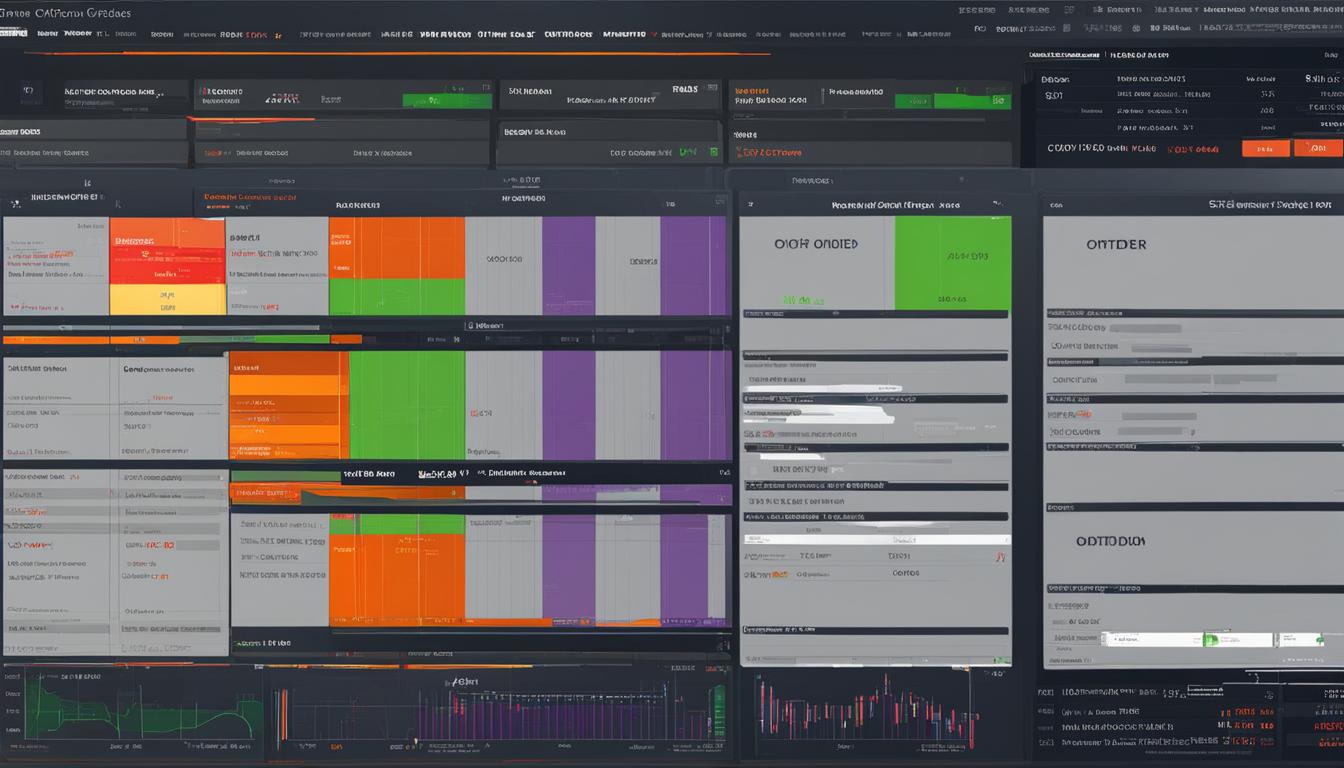When Do Options Get Assigned? Understanding the Process

Introduction
The options market is a dynamic environment where traders buy and sell options contracts, which grant the right—but not the obligation—to buy or sell an underlying asset at a predetermined price before a specified date. Understanding the mechanics of this market is crucial for making informed trading decisions.
Options assignment occurs when the holder of an options contract exercises their right to buy (call option) or sell (put option) the underlying asset. This process can have significant implications for both buyers and sellers in the options market.
The timing of when options get assigned is pivotal in options trading. Traders must grasp the concept of exercise notices, which are notifications that an option holder intends to exercise their option. Knowing when these assignments can happen helps traders mitigate risks and strategize effectively.
Understanding when options get assigned provides a critical edge in navigating the complexities of the options market, ensuring better risk management and more strategic trading decisions.
Understanding Options Assignment
Options assignment is a critical concept in options trading. It refers to the process where the holder of an options contract exercises their right to buy or sell the underlying asset. This can occur in two common styles: American-style options and European-style options.
American-Style Options
American-style options can be exercised at any point up to and including the expiration date. This flexibility poses unique challenges and opportunities for traders. When dealing with American-style options, you need to be prepared for the possibility of assignment at any time.
- Example: Suppose you hold a short call position on an American-style option with XYZ stock as the underlying asset. If XYZ’s price surges, the option holder might exercise their right to buy shares from you, leading to assignment.
European-Style Options
European-style options differ in that they can only be exercised on the expiration date. This provides predictability, allowing traders to plan their strategies without worrying about early assignments.
- Example: With a European-style put option on ABC stock, you know assignment will only occur on the expiration date if the holder decides to exercise their right.
Understanding these differences helps you better navigate the options market.
Factors Influencing Option Assignment
Several key factors determine whether an option will get assigned. Understanding these can significantly enhance your trading strategies, especially when you hold a short options position.
1. Intrinsic Value and Time Remaining Until Expiration
- Intrinsic Value: The intrinsic value of an option is a primary driver of assignment. If an option is in-the-money (ITM), it is more likely to be assigned. For example, a call option with a strike price lower than the current stock price has intrinsic value and could be assigned.
- Time Remaining Until Expiration: Options closer to expiration are more susceptible to assignment, particularly if they are ITM. As expiration nears, traders holding long options are incentivized to exercise their rights.
2. Role of the Underlying Stock’s Price
The underlying stock’s price plays a crucial role in the likelihood of option assignment. When the stock price moves significantly, it can push options into ITM territory, triggering assignments.
- If you have sold put options and the underlying stock’s price drops below the strike price, those puts are likely to be exercised by the holders.
- Conversely, if you’ve sold call options and the stock price surges above the strike price, those calls may be exercised.
In both cases, fulfilling requirements for assignment becomes essential as it directly impacts your financial obligations.
Understanding these factors allows you to better manage your positions and anticipate potential assignments. This insight helps in making informed decisions, ensuring you’re prepared for any scenario that may arise in the options market.
To gain further insights into how options trading has evolved over time and its impact on trading strategies, explore How Options Trading Changed In The Last Decades. This in-depth analysis uncovers key trends and changes in the market that can help inform your decision-making process.
For more information on different types of options and their implications, refer to our comprehensive guide on Differences Between Equity And Index Options.
The Impact of Option Assignment on Traders
Actions Taken by Traders Assigned Short Equity Call Options
When traders are assigned short equity call options, they must deliver the underlying stock at the strike price. This situation typically arises if the stock’s market price exceeds the strike price, making the call option profitable for the buyer. Here’s what happens next:
- Stock Delivery: The trader needs to have or purchase the shares to deliver. If they don’t own the shares already, they may need to buy them at the current market rate, which could be higher than the strike price.
- Financial Impact: This can lead to a financial loss, especially if there’s a significant difference between the current market price and the strike price.
- Portfolio Adjustment: Traders often need to adjust their portfolios to manage this delivery, possibly liquidating other assets or positions.
Actions Taken by Traders Assigned Short Equity Put Options
For traders assigned short equity put options, they must buy the underlying stock at the strike price. This usually happens when the stock’s market price falls below the strike price, making it advantageous for the put option holder. Key actions include:
- Stock Purchase: The trader is obligated to purchase shares at a potentially higher strike price compared to the current market value.
- Capital Allocation: This requires allocating capital to buy these shares, which might not have been planned.
- Risk Management: Managing this scenario involves assessing how this new holding fits within their investment strategy and risk profile.
Understanding these impacts helps in preparing for potential scenarios in options trading. It’s also crucial for traders to familiarize themselves with various aspects of options trading such as call options, as well as mitigate risks associated with factors like influence of trading halts on options trading.
Additionally, it’s vital to be aware of potential broker-related issues that can affect one’s investments. For instance, broker errors can have significant consequences, and being informed about them is essential for protecting your portfolio. Furthermore, the financial market is not immune to fraudulent activities, which is why understanding the nature of broker scams and learning how to keep your investments safe is crucial.
Managing Risks Associated with Option Assignment
Implementing proper risk management strategies is essential for traders dealing with potential option assignment scenarios. Understanding options market language and terms helps in crafting effective strategies to mitigate risks.
Key Strategies for Risk Management
- Diversification: Spread investments across various assets to reduce the impact of a single option assignment.
- Setting Stop-Loss Orders: Define predetermined loss points to limit potential losses.
- Monitoring Market Conditions: Stay updated on market trends and news which can affect the likelihood of option assignment.
Hedging Techniques
Utilizing different hedging techniques can significantly mitigate the impact of option assignment:
- Protective Puts: Buying a put option on a stock you own to protect against a drop in its price.
- Covered Calls: Writing call options on stocks already owned to generate income and offset potential losses.
For more detailed insights, consider exploring Options Quotes which provide comprehensive options quotes decoded, giving you an edge in financial trading. Additionally, learning about Neutral Options Strategies can help bolster your portfolio by providing winning strategies for any market condition.
Understanding the differences between systematic and unsystematic risk further aids in optimizing trading strategies, ensuring you are well-prepared for the complexities of the options market. Learn more about these differences here.
Conclusion
Understanding the complexities of the options market is crucial for any trader. Staying well-informed about the risks and mechanics of options assignment can significantly impact your trading success. Exercise notices play a pivotal role in this process, signaling when an option will be assigned.
The importance of risk management in options trading cannot be overstated. Implementing effective strategies helps you navigate potential assignment scenarios with confidence. Traders who are proactive in managing their positions are better equipped to handle the unpredictable nature of the market.
For those looking to deepen their knowledge:
- Options Exchanges: Who They Are And How They Operate offers insights into how different exchanges function, providing key insights into American financial markets.
- Options Settlement: How are the contracts settled? breaks down the procedures involved in closing contracts, helping you navigate the world of options trading with ease.
- Call vs Put: The Ultimate Showdown in Options Trading – Which Side Will You Choose? provides a comprehensive guide on choosing the right strategy, allowing you to dive into the world of options trading and discover which strategy best suits your investment goals.
- Option Moneyness Explained: Key To Advanced Strategies delves into advanced concepts to maximize trading profits, unlocking the tactics of savvy trading with Option Moneyness explained.
By staying informed and employing robust risk management techniques, you will be better prepared to handle the dynamics of options trading.
FAQs (Frequently Asked Questions)
What is the importance of understanding when options get assigned in options trading?
Understanding when options get assigned is crucial in options trading because it directly impacts the outcome of a trade. Traders need to be aware of the mechanics behind options assignment to make informed decisions and manage their positions effectively.
What are the two common styles of options assignment?
The two common styles of options assignment are American-style and European-style. Each style has its own rules and procedures for how and when option contracts can be exercised or assigned.
What factors influence option assignment?
Several factors influence option assignment, including intrinsic value, time remaining until expiration, and the price of the underlying stock. These factors play a significant role in determining whether an option will be assigned or not.
What actions are taken by traders who are assigned short equity call options?
Traders who are assigned short equity call options may need to deliver the underlying stock at the strike price. They can also choose to buy back the call option at a loss if they do not want to fulfill the assignment.
Why is implementing proper risk management strategies important for dealing with potential option assignment scenarios?
Implementing proper risk management strategies is crucial for dealing with potential option assignment scenarios because it helps traders mitigate the impact of assignment and reduce the overall risk associated with their options positions.
What is the final thought on the importance of risk management in options trading?
The final thought emphasizes the need for traders to stay informed about the risks and complexities of the options market, including the role of exercise notices in option assignment processes. Proper risk management is essential for navigating these challenges effectively.






